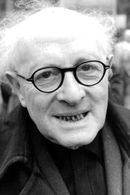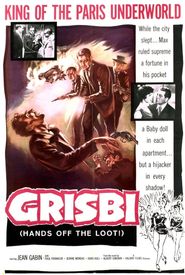Jean Wiener, a celebrated French pianist and composer of great acclaim, was born on March 19, 1896, within the picturesque boundaries of the 14th arrondissement of Paris.
Wiener's formative years in the music industry were characterized by a multifaceted career trajectory, which commenced with a stint as a concert impresario, composer, and pianist of remarkable talent. He occupied the esteemed position of house pianist at the renowned Gaya bar, where his skills and artistry were on full display. Subsequently, he transferred his services to the prestigious Le Boeuf sur le Toit, an esteemed establishment that would provide him with a fertile ground to cultivate his passion for jazz, a genre that would come to define his artistic identity.
It was during this pivotal period in his life that Wiener had the good fortune to cross paths with Clement Doucet, an encounter that would blossom into a lifelong friendship and musical partnership of immense significance. This serendipitous meeting would have a profound impact on Wiener's life and artistic journey, laying the foundation for a creative collaboration that would span decades and yield numerous outstanding achievements in the world of music.
The duo of Wiener et Doucet, comprising two talented individuals, achieved widespread acclaim across the vibrant music halls of Europe, captivating audiences with their distinctive fusion of classical music, sultry dance, and jazzy rhythms.
As the Second World War drew to a close, Wiener redirected his creative energies towards the realm of composition, with a particular emphasis on crafting sonic landscapes for the silver screen. Over the course of his illustrious career, he would go on to pen the music for a staggering 300 or more film scores, his artistry and versatility earning him a reputation as a master of his craft.
Among his numerous credits, Wiener's work on the opening theme music for ORTF's (Office de Radiodiffusion-Télévision Française) groundbreaking film history program, "History speechless" (History without words),stands out as a notable highlight. This innovative series, which sought to convey the power and significance of historical events through the medium of film, was a perfect vehicle for Wiener's talents, allowing him to bring his unique perspective and artistic vision to the forefront.
A renowned figure in the world of music, Arnold Wiener left an indelible mark on the art form through his tireless efforts to champion innovative and avant-garde compositions. His impressive network of connections within the music community allowed him to collaborate with some of the most prominent and influential composers of his time, including the likes of Arnold Schoenberg, Alban Berg, and Anton Webern.
Wiener's own compositional style was marked by a distinctive fusion of jazz rhythms and melodic sensibilities with the sophisticated elegance and wit that was characteristic of French music. This unique blend of influences resulted in a body of work that was both accessible and intellectually stimulating, appealing to a wide range of audiences and cementing Wiener's reputation as a master of his craft.
Throughout his career, Wiener's dedication to promoting new music and his collaborations with fellow composers helped to shape the course of musical history, leaving behind a lasting legacy that continues to inspire and influence generations of musicians and composers to this day.
Wiener's personal life was characterized by a deep affection for his loved ones, with his family occupying a special place in his heart. At the forefront of his personal life was his daughter, Elizabeth Wiener, a multifaceted individual who has made a name for herself in the entertainment industry. Elizabeth has demonstrated exceptional talent in various artistic pursuits, showcasing her remarkable abilities as an actress, singer, and singer-songwriter.
A pivotal moment in the literary journey of the illustrious cellist, Mstislav Rostropovich, came in the year 1978, when he decided to share his extraordinary life experiences and professional accomplishments with the world by publishing his memoirs, which he aptly titled "Allegro Appassionato". This remarkable literary work offered a fascinating glimpse into the remarkable life and illustrious career of the celebrated musician, providing readers with a unique opportunity to gain insight into the personal and professional triumphs of one of the most iconic figures in the world of classical music.
Jean Wiener was a renowned Swiss mathematician and engineer, widely recognized for his outstanding contributions to the fields of geometry and mechanics.
Born on November 22, 1899, in Zurich, Switzerland, Wiener was the son of a prominent family of Jewish descent. His early fascination with mathematics and physics led him to pursue his academic career at the University of Zurich, where he earned his Ph.D. in 1923 under the supervision of renowned mathematician, Leon Lichtenstein.
Wiener's groundbreaking work in geometry, particularly in the areas of differential geometry and topology, has had a lasting impact on the development of mathematics. His research focused on the study of curves and surfaces, and his innovative approaches have been applied in various fields, including engineering, physics, and computer science.
In addition to his academic pursuits, Wiener was an accomplished engineer, with expertise in mechanics and machine design. His work in this field led to the development of innovative mechanical systems and devices, which have been used in various industries, including aerospace and automotive.
Throughout his career, Wiener was an esteemed professor at the University of Zurich, where he inspired and mentored numerous students, many of whom have gone on to become prominent mathematicians and engineers in their own right. His dedication to his work and his students has left a lasting legacy in the world of mathematics and engineering.
Jean Wiener's remarkable contributions to mathematics and engineering have been recognized and celebrated through various awards and honors. His work continues to inspire new generations of mathematicians, engineers, and scientists, cementing his place as one of the most influential figures in the history of mathematics and engineering.























